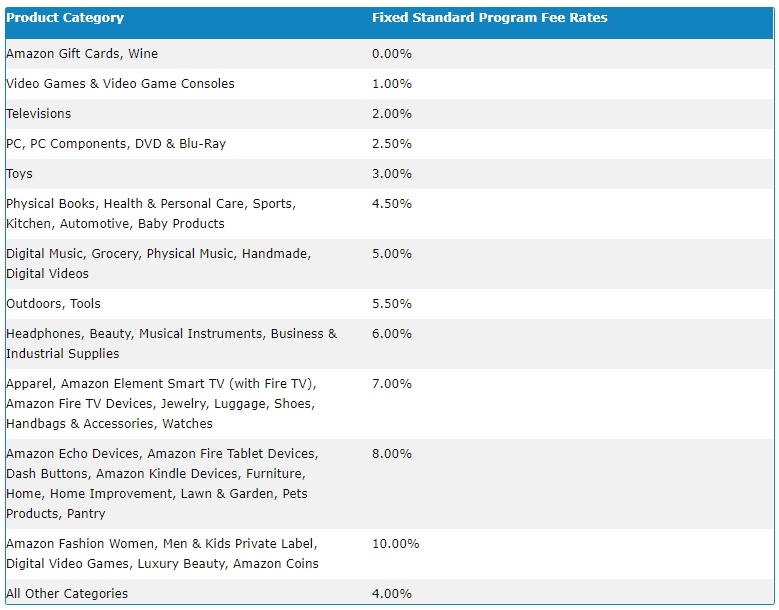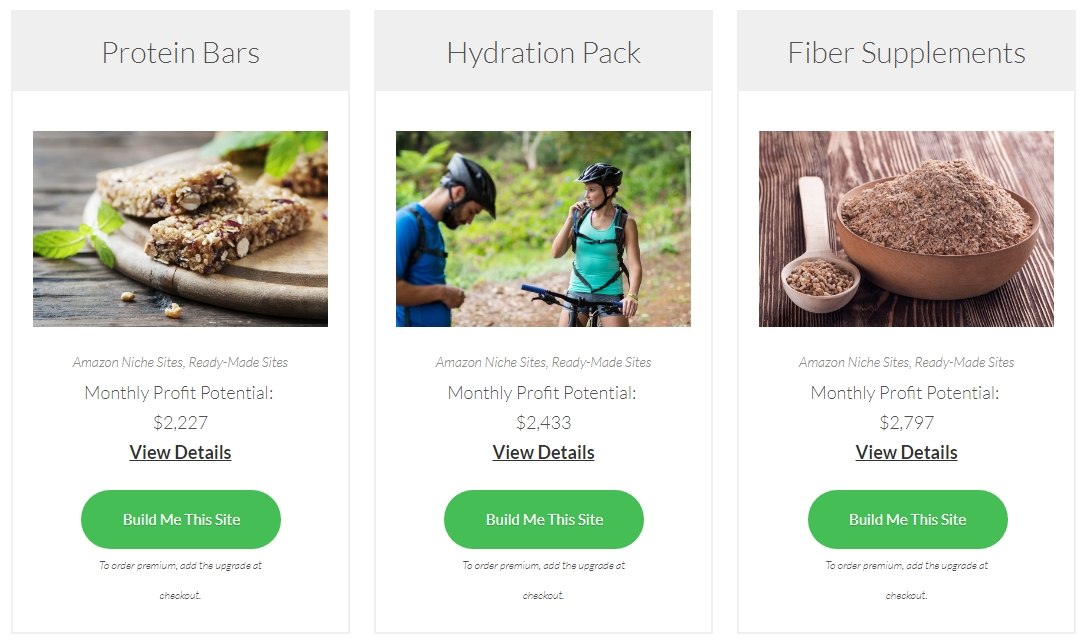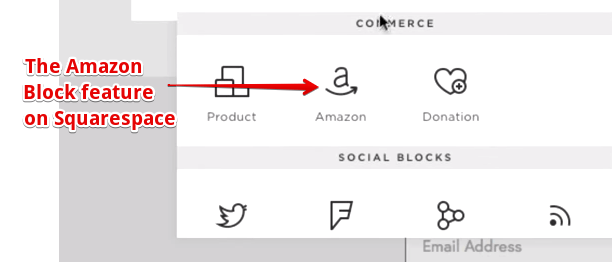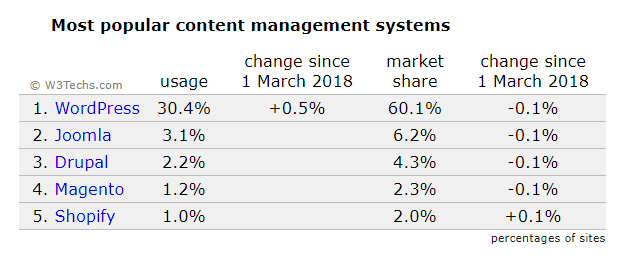So you’ve come to know that one of the ways to build an online business is by becoming an Amazon Associate. That’s a good start, but the requirement is to have a website in place first before you can be qualified. For someone who knows nothing about this, it can seem like a daunting task.
Hence, the focus of today’s topic is to explore all the options that are available out there, what are the things to consider and find out exactly how to start an Amazon affiliate website even if you are a newbie.
Why Building a Website Is Important
There’s a small number of people who prefer to do affiliate marketing without a website and actually share about those techniques online. If you’ve come across any information like that, know that this is not the gold standard and traffic will be very expensive to acquire. It might work for places like Clickbank, but for the majority of merchants (including Amazon), the presence of a website will serve more advantage because it reflects the following;
- You are committed to becoming an affiliate marketer for the long term.
- You are serious about promoting their products through search engines.
- You are not going to spam your affiliate links all over the web.
- And most importantly, you are someone who’s knowledge in a particular niche and willing to share a thing or two with the audience.
Nowadays, content and engagement have to come first whenever you are selling something online. People are more consumer savvy and will only part with their money if thorough research can convince them that they are getting something worthwhile.
Thus, your job as an affiliate marketer is to provide them with as much helpful information as possible and there’s no better place to do this than on your own website.
What Exactly Is a Niche
Finding a niche is more than just searching for something that you are passionate about. It also has to have market demand and commercial values that you can scale and turn into a profitable business.
In simplicity, a niche is defined as a group of audience with a common interest and in the case of the Amazon marketplace, these interests are clearly divided into a broad range of product categories.
Each category has its own set of commission levels (see image below) and it’s crucial to give this some thoughts before deciding on which niche you want to pursue.

Higher rates can make a niche look profitable, but if your product review sucks, the sales conversion isn’t going to be any better. Lower rates may make a niche look unattractive, but if you know how to market it properly, earning a good commission isn’t impossible either.
For me, any product that is backed with good reviews and personal experience is something that can be recommended and potentially scale in a given niche. Granted, you have done your marketing research and communicate with the audience in an engaging way.
I know it seems like I am deviating from the main topic here, but knowing the function of a website and understanding your niche is going to be relevant moving forward with our discussion. So I hope the concept makes sense so far.
4 Ways to Build an Amazon Affiliate Website
1) Ready-Made Niche Sites
In this case, you don’t build a website, you buy one. This option can be for anyone, in particular, people who have the money or businesses who want to scale their operation. There are companies out there that research on profitable niches and build sites around it before selling them to you.
Usually, they have done the legwork of gathering keywords, writing content and optimizing the sites so that they are ready to rank when new owners take over.

The Pros – As you may have guessed, it saves you a lot of time from having to build a site ground up. You just pick a niche and use what’s provided to market online. This means you can start making profits in a matter of months.
The Cons – Well, it will cost you money, somewhere between $50 to $4K per site, depending on what comes with the packages. Just like niche selection, it can’t be assumed that the more you pay for, the better the return on investment you would get.
Like many products being sold online, ready-made sites can be filled with fraud activities. Will you be getting cloned sites? Are there any other hidden costs behind the price tag? A diligent background check is necessary if you are planning on buying affiliate websites.
For beginners who have no prior knowledge about search engine optimization, support and training from the seller are crucial. Otherwise, it’s like buying a car without knowing how to drive it. And that’s the point. A ready-made site still needs work like adding content and doing social engagement to reach its full potential in a certain niche. So it’s definitely not something that makes money immediately right out of the box.
2) Pre Built Affiliate Stores
This type of affiliate website is more like an online store that contains links to specific products listed in the Amazon marketplace. Just like the previous one, it is built according to a certain niche and comes with a moderate amount of content just to beef up the site. There are different hosting packages available depending on how many stores you want to operate. The Fresh Store Instant is one such program.
The Pros – These stores are usually linked to the product database (price, customer reviews, sales rank and etc.) on Amazon so that you can easily add them to the site. This process enables you to discover a variety of products that can be found in a niche and give away ideas as to how you can make your marketing more interesting.
The Cons – Unlike ready-made sites, affiliate stores aren’t necessarily optimized. They use a very different platform and are mostly software that integrates different programs to provide you with something that looks like a website, but not really a functional one.
Some of the programs included are content spinners that automate article writing so that you can churn out a ton of content within a short period of time. In reality, however, this type of content doesn’t have a natural human tone and you are going to have difficulty engaging with a real audience who visits your site.
The other problem is that they are often stuffed with products that make your site look like an eCommerce platform rather than a review blog, which is what it should be in the first place. In case you don’t know, online stores that only contain product listings without substantial content is known as ‘thin sites’ that will have a hard time ranking on Google.
Honestly, this type of model isn’t very popular anymore as there are better platforms/services out there that focus more on good quality content and search-engine-friendly features. So let’s move on and see what they are.
3) Website Builders
A very common platform for beginners, website builders are basically programs that help to construct websites without the need for manual codings. Their interfaces are simple to understand and intuitive when it comes to design elements. Most of the time, the back office editor is exactly what you would get on the front end, so it’s not difficult to envision how your site is actually progressing. Some companies that are working with this type of platform are Wix, Weebly, and Squarespace.
The Pros – Because the components of website builders are easy to execute, the process of building a website is fairly easy. Most of the programs are constantly improving on their SEO features so getting indexed and ranked is now quite possible.
Some also have features to help with affiliate marketing such as the one on Squarespace. Through their Amazon block tool, the program integrates with the Amazon product database to extract and display images for your blog content. So that’s really convenient.

The Cons – The number of features that are available to move an online business on a large scale is still limited in the world of website builders. Often times, there aren’t enough choices with template designs, the provision for site speed is sub-optimum and support can be frustrating to reach when there’s a technical glitch.
4) Self-Hosted WordPress
I want to specify on the term self-hosted here because there are two types of WordPress platform available out there. The free blogging service is called WordPress.com and this platform has strict rules when it comes to affiliate marketing.
The other one is called WordPress.org which is basically an open-source software that’s free to use, but you need to pay for the hosting fee. Any type of online business can use them, so this is the one that we’ll be talking about.
The Pros – WordPress is a content management system and that means, it organizes digital files in a way that is easy to access and edit. The platform is abundant with features that allow customization so you can have more control of what goes in and out of your content. When fully optimized, it can rank very well on the search engines too.

Due to this, bloggers love using them, especially fellow Amazon Associates. In fact, many of the ready-made niche sites mentioned earlier are also built on this platform. There are many good hosting companies that support WordPress publishing and for $30/month, you can get one up and running within minutes.
The Cons – There’s some learning curve involved when it comes to using WordPress as a lot of things aren’t ready out of the box. For example, there are certain settings to tweak for SEO and there are a few plugins and themes to avoid because they are no longer in maintenance.
When facing technical issues, it can be very difficult to resolve on your own without getting professional help. My tip for this is that you want to make sure your hosting company can assist in rectifying the situation promptly without affecting your business online presence. If they can’t handle it well, that’s a red flag to switch to a different host.
My Verdict
Out of the four methods, I would recommend going with ready-made sites (if you have the money and willing to dive deeper into research and marketing) OR self-hosted WordPress (if you truly want to master SEO skills on a shoestring budget). It’s pretty obvious that I am pro-WordPress here because it has done so well for my own site and therefore, I am pretty confident that it will do the same for yours too.
So that wraps up my discussion on how to start an Amazon affiliate website. Hopefully, you’ve found some value with this information and if you are interested to have a look at what goes behind a WordPress editor OR curious to know how other Amazon associates work on their business, feel free to tour my recommended training platform and I’ll see you on the inside.
Question – What type of issues do you face when building a niche website? Please share your experience in the comment space below so that we can all learn something new.

Wealthy Affiliate has a plethora of tools and training that can streamline the process. It would be a pity to go buy a ready-made website that could cost a lot more money. It is ridiculously easy to make a new one even for those who know nothing about website building. At least you get to create something that is suitable for your niche and budget.
Hi Cathy,
I really enjoyed reading your post. I had no idea ready-made sites could cost so much! I am glad that I can produce my own self-hosted website. Something I wanted to do for several years, but did not know how til a year ago.
I know that Amazon has its own rules and regulations about becoming an associate. Where can I find more information about this?
Hi Stella, I believe that this is the page that you are looking for. Hope it helps.
I’ve been very interested in taking on an Amazon Affiliate account but I’m a bit worried about how I’m going to get my foot through the door?
What would be the best route to take – should I start my website first, with a few articles, BEFORE I apply to Amazon for an Associates account? Will they even consider you without a blog behind you?
Hi Chris, definitely start with a website and some content first before applying for the program. That information is required in your application anyways. When there’s a substantial traffic, it’s much easier to promote something and get your first Amazon sale.
Thanks for another excellent and informative article Cathy! I had no idea that you could actually purchase pre-made niche websites. That never even crossed my mind and sounds almost too good to be true. I imagine it comes with its own challenges.
WordPress is a very robust platform and it sure comes with a learning curve. However, I think I should focus on building one from the ground up, before thinking about jumping into a pre-made ones.
The biggest issues I’ve experienced so far are getting traffic and making my website look as professional as possible, without being too flashy or simply plain.
Hi Jon. I totally understand where you are coming from, but this video tutorial has some good tips on how to boost your site traffic. So do check it out.
Cathy, you expanded upon my base knowledge of all 4 of these ways to start an amazon affiliate website. Plus you explain it very well.
I’ve been part of the Wealthy Affiliate community for about a year now. I knew nothing about SEO or WordPress and one of the greatest joys I have discovered through this process is learning new skills. My website is continuing to grow and gain traffic (but little to no sales yet) slowly but surely.
About 3 to 4 months ago, I purchased a website that was a ready made niche site. Of course right after that my life got extremely busy and I haven’t done anything with it yet. Someday soon, I will though and I’ll have another point of reference for building an amazon affiliate website.
Hi there, I almost like the idea of a ready-made website because it feels like there’s nothing else to do except waiting for the profit to grow. Now, I am having second thoughts.
Your article definitely hinted me to act and do what an affiliate marketer should do which is creating content and reviews. The process of building a business shouldn’t come easy, otherwise people won’t be motivated to achieve anything and there’s no accomplishment to be proud of.
I do have an affiliate site as well as a money-making niche site. My affiliate site has been tough sometimes to bring in the traffic and to find good keywords to use for my niche. I did make my first 3 sales this month though which is good. Wealthy Affiliate is good to join if you want to set up with WordPress, because everything is pretty much done for you. You can also use it to build websites for clients.
Ya, with the paid membership in WA, you’ll get 25 domain accounts, which means, you can potentially build 25 websites for local businesses as well as blogging sites. In the beginning, you can reach out to friends and families who run small businesses, but lack online presences. Then, as you go along building your portfolio, you can reach out to more people.